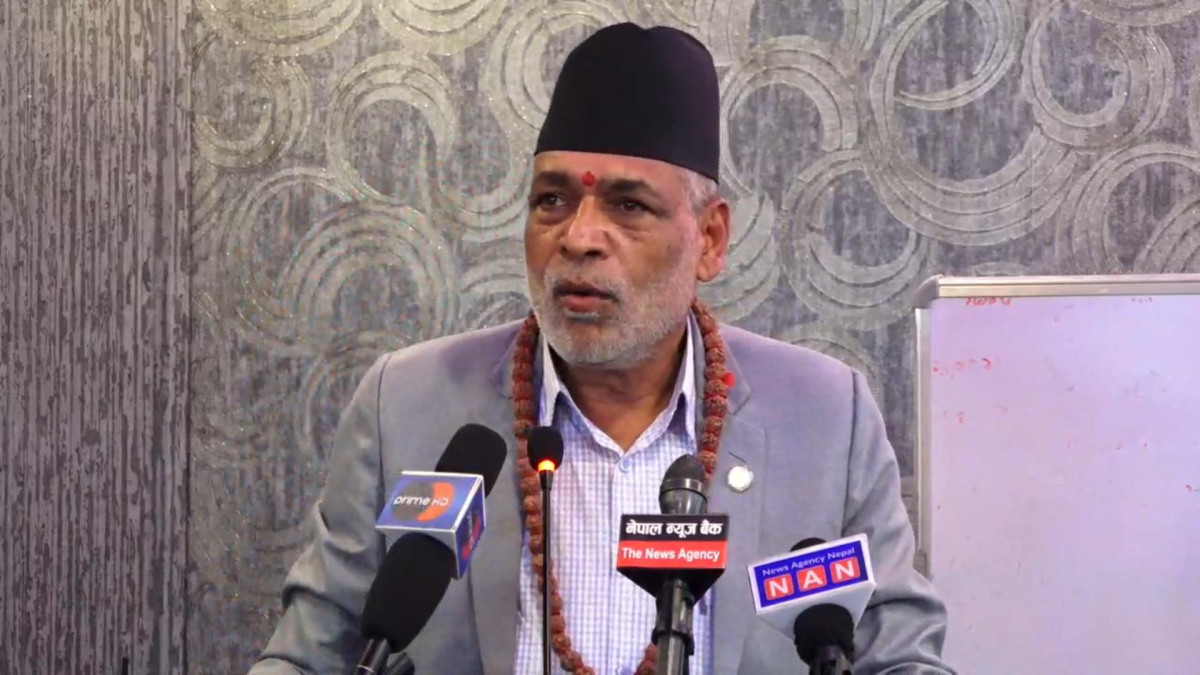Kathmandu —
Minister for Agriculture and Livestock Development, Ramnath Adhikari, has acknowledged that the shortage of chemical fertilizers in Nepal is a long-standing issue that is unlikely to be resolved anytime soon due to systemic limitations.
Speaking at a Dahi Chiura Promotion Program organized by the Nepal Dairy Association in Kathmandu, Minister Adhikari highlighted structural, financial, and policy-level challenges as key reasons for the recurring fertilizer shortage faced by Nepali farmers.
He revealed that despite allocating a budget of NPR 27.95 billion for fertilizer supply last year, the government was able to import only slightly less than 450,000 metric tons of fertilizer. However, the actual annual demand across the country ranges between 1.1 to 1.3 million metric tons, indicating a significant shortfall.
“Even with nearly 28 billion rupees allocated, we could supply only around 450,000 tons,” Minister Adhikari said. “The demand is almost three times higher. In such conditions, timely delivery to farmers is nearly impossible. Fertilizer shortage is a recurring problem — it will continue to exist regardless of who the minister is.”
Reflecting on his tenure, he said that although he had hoped to bring major reforms, economic constraints and institutional inefficiencies limited the ministry’s ability to implement plans.
“When I became minister, I thought I would change many things. I had the desire. But financial limitations and structural inadequacies prevented many initiatives from being realized,” he admitted.
Minister Adhikari also addressed the strained financial relationship between the government and farmers, especially dairy farmers. He acknowledged the government’s failure to make timely payments for milk supplied over the years.
“We’ve been consuming milk from our farmers for years, but we haven’t been able to pay them. That is our failure,” he said. “Still, we have to stand before the public and appear cheerful.”
He further pointed out that areas such as cold storage infrastructure and agricultural insurance remain highly problematic, and solving these issues would require deep institutional reform.
“There are problems across the board — in cold storage, insurance, and more,” he noted. “But once you take on state responsibility, you have to assure people that something will be done.”
The minister’s candid remarks reflect the broader crisis in Nepal’s agricultural system, where farmers regularly face input shortages, delayed subsidies, and infrastructural gaps, all of which directly impact productivity and food security.


